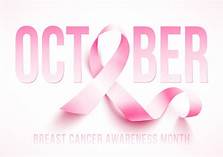October: Month-Long Awareness for a Life-Altering Disease

November 4, 2019
For more than 30 years, October has been designated as Breast Cancer Awareness Month and is an effort to raise understanding about the disease, increase early detection, and reduce the stigma of breast cancer through education on symptoms and treatment.
National Breast Cancer Foundation has provided over 305,000 mammograms and diagnostic services to women in need across the country.
Breast cancer is a disease in which malignant (cancer) cells form in the tissues of the breast. Breast cancer starts in the cells of the breast as a group of cancer cells that can then invade surrounding tissues or spread to other areas of the body.
In 2019, an estimated 268,600 new cases of invasive breast cancer will be diagnosed in women in the U.S. 62% of breast cancer cases are diagnosed at a localized stage, for which the five-year survival rate is 99%.
This year, an estimated 41,760 women will die from breast cancer in the U.S. A risk factor is something that may increase the chance of getting a disease. Some risk factors include drinking alcohol; women who have three alcoholic drinks per week have a 15% higher risk of breast cancer. These actions can be avoided.
But most risk factors, such as having a family history of breast cancer, can’t be avoided. Breast cancer is the most common cancer among women worldwide.
Some common types of breast cancer are: Metastatic breast cancer (also classified as Stage 4), Ductal carcinoma in situ (DCIS), Invasive Ductal Carcinoma (IDC), and Triple Negative breast.
I recently interviewed a close family member, Rosalyn Taylor, who underwent the scare of diagnosis and treatment for breast cancer. She first detected her cancer when she noticed what “felt like a small bump” under her arm. She explained she then “checked the left side, and nothing was on that side. I often did self-examination.”
Her diagnosis wound up being a malignant neoplasm of female breast in the upper outer quadrant. She underwent a lumpectomy and seven weeks of radiation.
After the cancer was found, my aunt changed a number of habits. “I changed the food I ate. I now include more fruits and vegetables and I rarely eat red meats. [I’m] Still working on exercising with consistency.”
She now highly recommends monthly self-breast examinations and a better diet, one that includes fewer red meats to everyone.
Even though there is only a month dedicated to these strong women and men who have been diagnosed, Breast Cancer is a diagnosis that impacts an individual for a lifetime. As research scientists look for a cure in the future, those diagnosed and in the trenches continue to fight, and those around them continue to pray and support.


